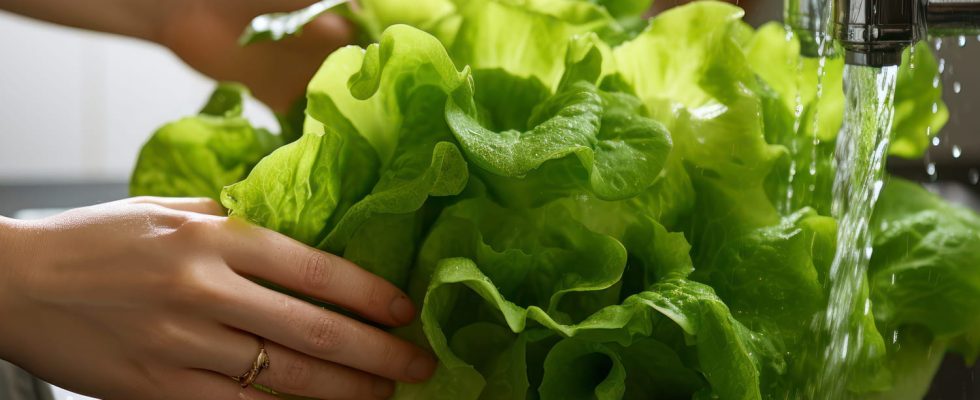You may not know it, but lettuce is, for example, often involved in food poisoning.
Lettuce has many health benefits. A natural antioxidant, it is a source of fiber, vitamins and minerals good for our body. On the other hand, it is sensitive to contamination by the bacteria Escherichia coli (E.coli) and has been the cause of several food epidemics in the United States. Researchers at the University of Illinois may have found a way to protect yourself from poisoning from this salad.
To achieve their results, they infected whole leaves of 5 different vegetables with E. coli and observed the consequences when the food was stored at 4°c, 20°c and 37°c. Reactions could vary depending on the sensitivity of the vegetable, determined by a combination of factors including the properties of the leaves (for example according to their roughness).
“At room temperature, E. coli grows very quickly on lettuce”
The researchers then noted a greater presence of E. coli bacteria on lettuce, compared to other vegetables: “At room temperature or above, E. coli grows very quickly on lettuce, but if lettuce is refrigerated to 4°C, we see a sharp drop in the E. coli population.” reports the lead author of the study, Mengyi Dong in the journal Food Microbiology. Rinsing the salad is useful but is not enough to eliminate all bacteria. You should also consider refrigerating it to reduce the risk of contamination by E. coli, according to the researchers.
Kale and cabbage, more resistant
The results differed for the other vegetables studied. Thus, kale and green cabbage are generally less susceptible to E. coli contamination compared to lettuce. “On these vegetables, E. coli grows more slowly in warmer temperatures, but if it is already present, she can survive longer under refrigeration.“In addition, researchers discovered that the juice of spinach, kale and collard greens had antimicrobial properties that would protect against E. coli. Not to mention that these vegetables are often consumed cooked which kills the bacteria while the Lettuce is eaten raw.
In conclusion, they state that they do not want to discourage consumers from eating fresh vegetables. All you need to do, they say, is wash them thoroughly after purchase, store them in the refrigerator and watch for potential food safety recalls.
